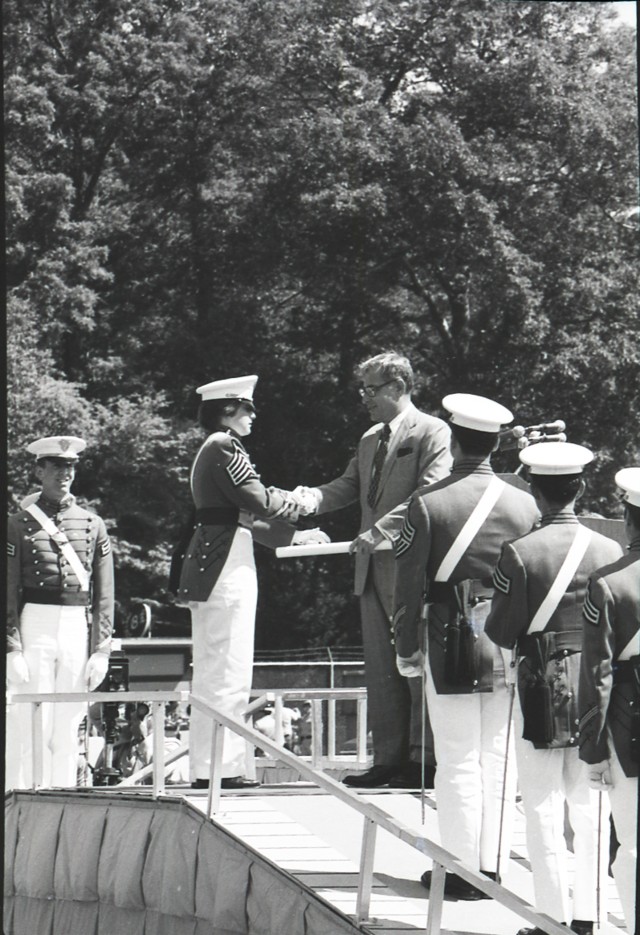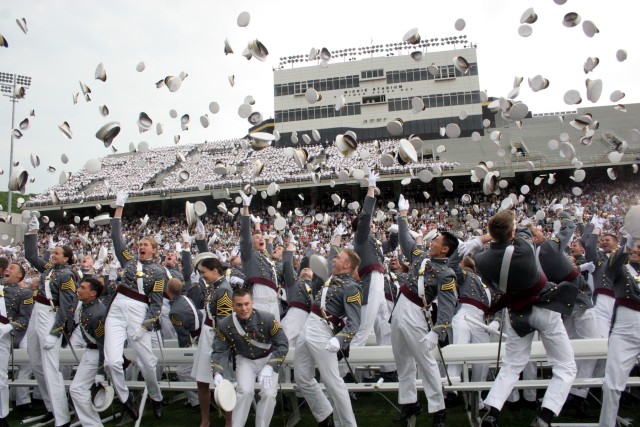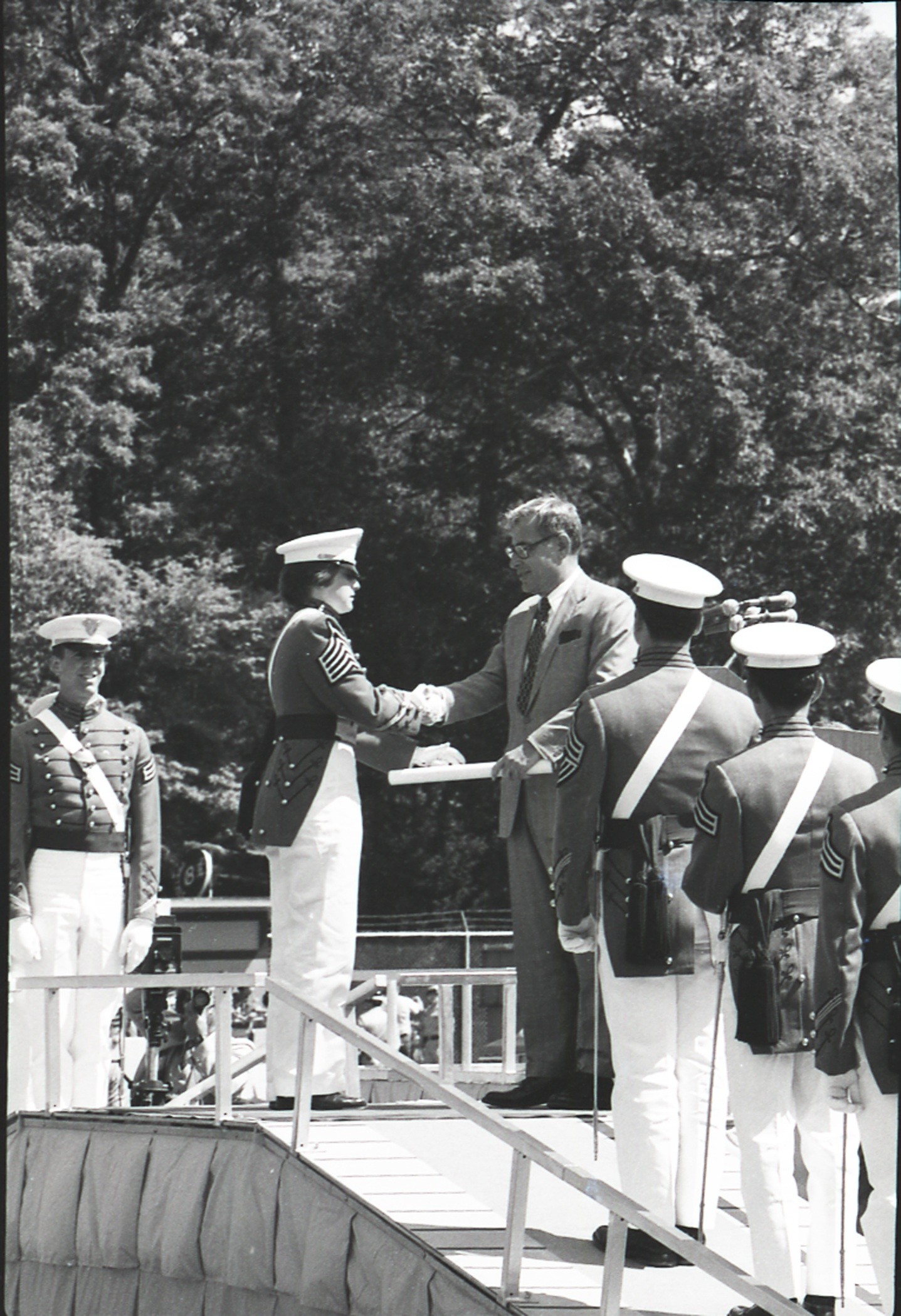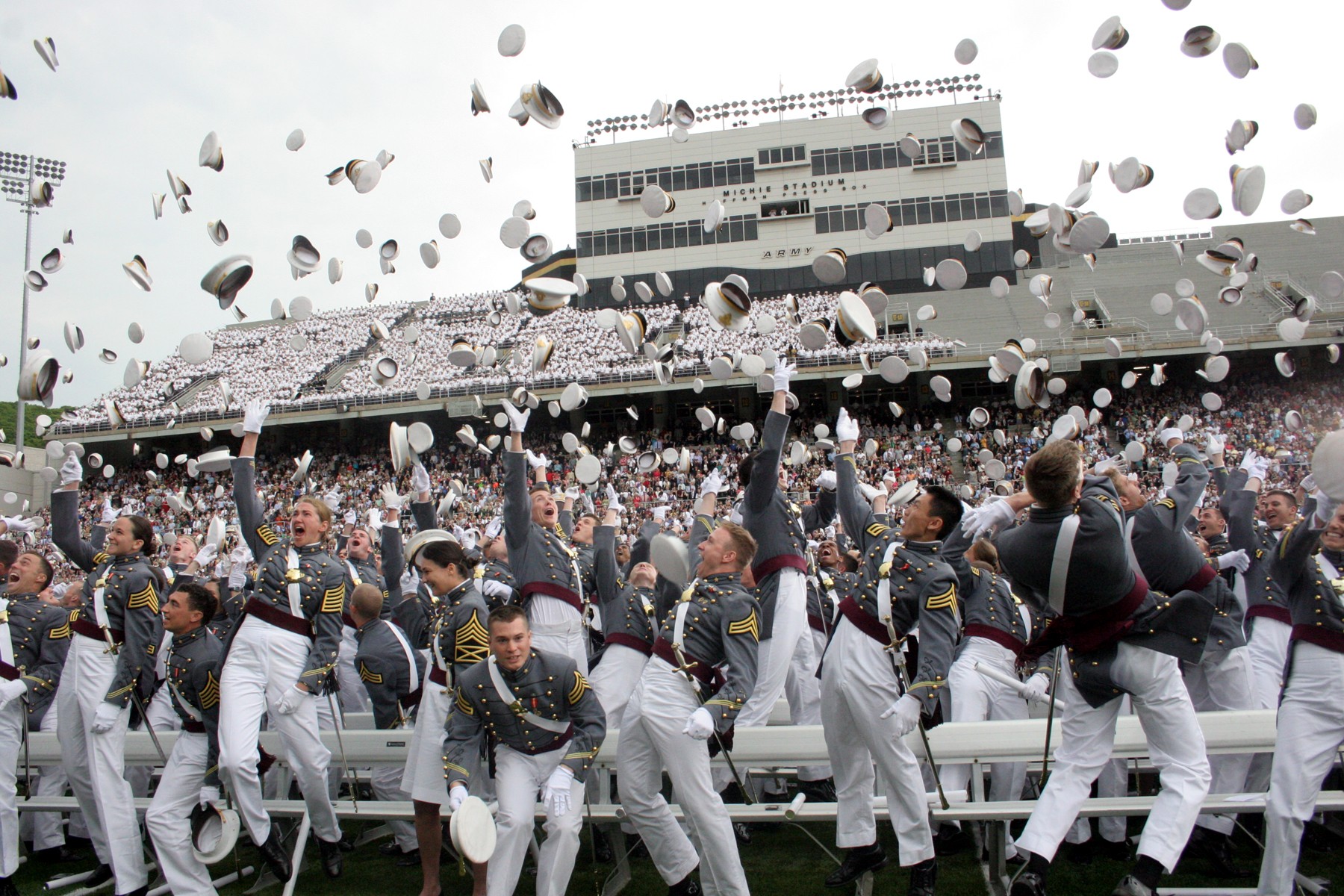WASHINGTON (Army News Service, May 20, 2010) -- Saturday's graduation at the U.S. Military Academy will mark 30 years since the first women joined "the long gray line" of West Point graduates.
The academy accepted its first coed class in 1976 as 119 women joined the Corps of Cadets. Four years later, 62 of those women were commissioned as second lieutenants in the U.S. Army, forever carving their names in history as the first to graduate from West Point.
"I am very proud to be a West Point graduate and what it has done to shape me as a person and officer in the U.S. Army," said Brig. Gen. Anne F. Macdonald, Class of 1980, and now assistant commanding general for police development, NATO Training Mission - Afghanistan.
"Still, I don't think any of us did realize [the gravity of] what we accomplished," Macdonald said recently.
"The first days were exciting, confusing and challenging," Macdonald said. She and others in the first class said it wasn't just intense for them, but for all cadets, both men and women, transitioning into their new life.
"Of the 119 women entering that day, I suspect all of us, along with the men, can say those days were life-changing," said Col. Debra M. Lewis, Class of 1980, who retired this month as inspector general for Washington state's National Guard.
The women faced numerous setbacks, bizarre predicaments, and bouts with embarrassment and disrespect, said Lewis.
The female-specific uniforms alone caused controversy. A wardrobe malfunction on the first day caused several broken zippers. The pants had no pockets and resulted in women carrying personal items in unusual places. And their jackets had tails, as to not attract too much attention to their backsides.
"When I walked into a room, I was a female cadet, so ... the idea that the academy had integrated immediately confronted me," said retired Lt. Col. Brigid Lester, West Point class of 1980 and now an engineer with National Oilwell Varco in Austin, Texas.
"I wish I could have lost the adjective. I didn't want to be a female cadet. I wanted to be a cadet," Lester said.
The academic and physical expectations for the newly admitted female cadets were the same as those of their male counterparts. However, the pressure some women felt to be as good as or better than their male counterparts was a constant, said Lester. In an attempt to "not be a female cadet" she said some of the women denied themselves an immediate bond with their fellow female cadets.
"I always thought that if the women banned together, that would be justification for male classmates and others to say, 'oh look, there's the women,'" said Lester.
Despite being physically fit, the Army tradition of running presented a challenge for many of the women. Unlike later years at West Point, the first summer had only one running group for all skill levels, pushing some of the women to run faster than their bodies were ready to handle in order to compete with their fellow cadets.
"Frequently turning purple by the end of the runs, I decided early on that I would pass out before I let myself drop out of a run," said Lewis.
Despite the challenges these women faced during their time at the academy, they said those experiences made them better leaders and made it easier for the many women who shared the same desire to attend a university full of tradition and history.
"The really good news is that society, the Army and the academy have overcome," said Lester. "My daughter was commissioned in the Army a year ago and she is not a female lieutenant, she is a lieutenant."
More than 100 more women are expected to join "the long gray line" of West Point graduates Saturday.




Social Sharing